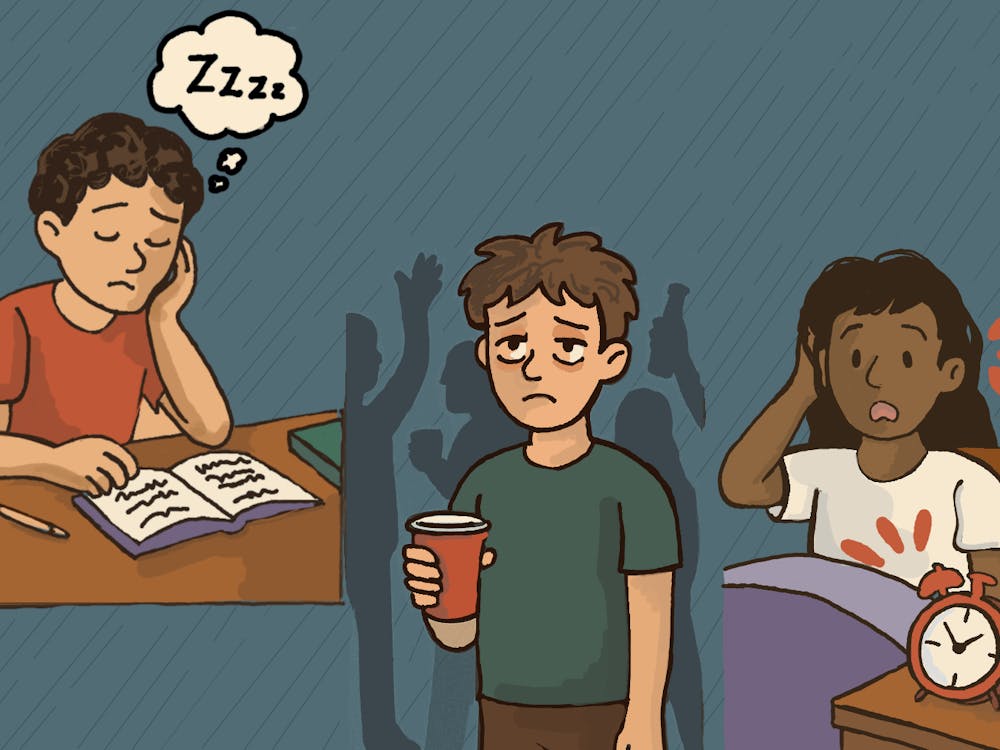The buckles of my black combat boots clink against each other as I trudge up the incline towards Clark. A couple of tall men whose faces are masked in the shade of their baseball caps are heavily immersed in a conversation as they march in a horizontal defense line towards me — edging me off the sidewalk and into the street. I step down from the umber red bricks onto the grey concrete and circle around them.
I am at CVS waiting to self-checkout as I sheepishly hold a box of Oreos in one hand and a box of Midol in the other. Just as the person in front of me bags their things and rips their receipt, a heavy-set man comes out of the aisle with his group of friends and plunks down a six-pack of beer on the cash register I was walking towards. I wait for him to finish paying without saying a word, watching his friends slap his back in a congratulatory manner and noticing that the little boy in the next line holding his father’s hand was looking at me, wide-eyed.
I am standing in the elevator with a group of fellow first-year men and as the door slides closed, one of them boasts, “Dude, he couldn’t believe that I picked up a girl as I was walking down the stairs.” They all silently nod their heads in approval.
These are only a few snapshots of subtle assertions of masculinity I experience on a daily basis of which my Women & Gender Studies class has made me more aware. Although I began to pay more attention to the minor ways I was shouldered into feeling small and insignificant, I also grew more sensitive to my instinctual responses.
Instead of stomping through the group of men to force my presence to be acknowledged, I avoided confrontation and submissively stepped down. My heart thumped aggressively in my ears as my thoughts raced with everything I wanted to say to the man who cut me in line and to the man who spoke of “picking up” a girl similarly to the way he would speak about picking up a gallon of milk at the supermarket.
On the second day of class, my professor handed out sheets of paper with two boxes on them — one box filled out with characteristics of stereotypical ideas of what it means to be masculine and the other with what it means to be feminine. When I read words like “peace-keeper,” “demure” and “quiet” in the “feminine” box, I didn’t know whether I should have felt relieved that it served as an explanation for my instincts or whether I should have felt confused after always considering myself an “out-of-the-box” kind of woman.
I recalled a day during my senior year of high school in which my math teacher told me to “stop making a scene” after I had blurted out that the guy sitting next to me had squeezed my thigh under my desk. I now know that if scenes aren’t made, then nothing will ever be seen. On a different day, the same guy who had squeezed my thigh held a door open for me, and then asked me whether I thought that “the only reason men hold doors open for women was to check them out from behind.” As I looked down at the pavement that began to speed up underneath my feet, I thought to myself, “Is chivalry dead or merely an illusion?”
I quieted these alarming actions by relegating them as mistakes and misunderstandings. Bowing my head in acceptance as a response to these situations makes me just as much of a perpetrator of gender stereotypes as any of these men who checked off the characteristics “confident,” “cocky” and “dominating” as masculine. Perhaps we are all confined by the “gender box” in ways that we don’t even bother to take note of because it has grown into our second nature. Perhaps my gendered “outfit,” or image, is sewn from the same mass-manufactured cloth as the men of whom I was initially so critical.
It’s strange to think that it takes practice, courage and even force to outwardly be yourself and defy the suffocating parameters of the “gender box” that has woven itself into a skin-tight fabric because of the ways we have been conditioned to act and respond. However, one scene at a time, we can slowly begin to stretch and even tear our way out of our gendered images, snapping threads and pushing buttons.







